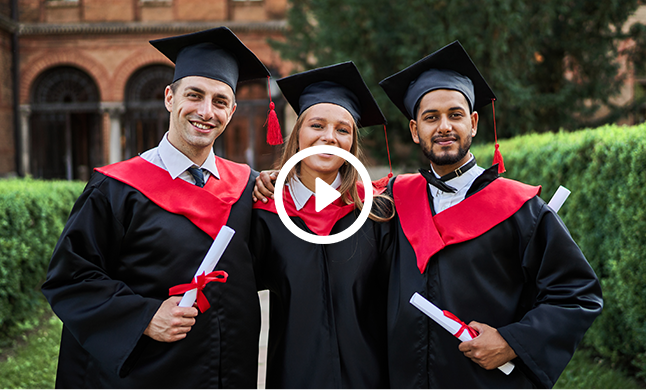Blog > The Role of Extracurriculars in Ivy League Admissions
The Role of Extracurriculars in Ivy League Admissions
June 10th, 2025

The Importance of Extracurricular Activities
Extracurricular activities shape a student's profile for admissions in the Ivy League. In other words, Ivy League institutions, such as Harvard, Princeton, Yale, Columbia, Cornell, Dartmouth, Brown, and the University of Pennsylvania, look for students beyond just academics. They search for candidates with a breadth of experience who not only show academic excellence but also demonstrate leadership, passion, and commitment to personal growth.
Differentiation in a Competitive Pool
With modest acceptance rates of 2% to 8%, it isn't surprising that most Ivy League applicants possess an exceptional academic record. In an intensely competitive pool, extracurricular activities become a major differentiator. These create a niche through which the students could demonstrate their uniqueness, sustained commitment, and significant accomplishments. An instance of this will be a candidate who begins a community initiative or a candidate that excels in a niche mode of artistic endeavour, all of which distinguishes him or her from applicants with similar academic credentials.
The Significance of Extracurricular Activities
Demonstrating Passion and Commitment
Although the Ivy League institutions look for depth over breadth regarding the involvement of extra activities, the depth leaves one more awed. There are occasions where it is more exciting for the admission officers to find a student who devoted considerable commitment toward one or two programs for several years than one that crams varied short entries into the list. This proves passion and resilience—two qualities deeply valued by the Ivy League schools.
For Example:
A violinist who started playing at the tender age of five and now developed into a national competitor is sure to reflect his dedication to the activity and its vision.
Another that decides to start up a coding club to enlighten underprivileged children truly reflects initiative and commitment.
Leadership and Initiative
Leadership roles in extracurricular activities reveal to the admission officers an applicant's possession of responsibility and the ability to inspire others. An applicant who is the captain of a sports team or a charity fundraiser shows that the student is in a position to lead effectively. A key quality on which Ivy League institutions place great weight.
Personal Growth
Extracurriculars often push students out of their comfort zones, fostering growth and self-discovery. Activities like public speaking or participating in Model United Nations help develop confidence and communication skills. Similarly, volunteering at a local shelter can cultivate empathy and social awareness.
Community Impact
Ivy League schools value students who can contribute positively to their communities. Engagement in service-orientated projects demonstrates compassion and a sense of responsibility toward society.
For example:
Organising environmental cleanups reflects environmental stewardship.
Mentoring younger students showcases leadership and generosity.
Choosing the Right Extracurriculars
Quality Over Quantity
Students often wonder whether they should participate in numerous activities to impress admissions committees. The answer is no—quality trumps quantity every time. It’s better to excel in a few meaningful pursuits than to participate in too many.
Aligning Activities with Interests
Authenticity is key when selecting extracurriculars. Admissions officers can easily spot when students engage in activities solely to pad their resumes. Instead, applicants should focus on pursuits that genuinely align with their passions and goals. For instance:
A student interested in medicine might volunteer at hospitals or conduct biology research.
Someone passionate about literature could start a book club or write for local publications.
Exploring New Horizons
While depth is important, trying new activities can also be beneficial. Exploring diverse interests shows intellectual curiosity and adaptability—traits that Ivy League schools appreciate. For example:
Learning a new language or instrument demonstrates versatility.
Participating in cultural exchange programs highlights openness to different perspectives.
Examples of Impressive Extracurriculars
Here are some examples of extracurricular activities that resonate strongly with Ivy League admissions committees:
Academic Pursuits: Conducting independent research or participating in science fairs.
Arts: Winning awards for painting, music composition, or theatre performances.
Athletics: Competing at state or national levels in sports.
Community Service: Establishing non-profits or organising large-scale charity events.
Entrepreneurship: Launching small businesses or innovative projects.
Leadership: Serving as student body president or leading advocacy campaigns.
How Admissions Committees Evaluate Extracurriculars
While evaluating extracurriculars, there are three key factors that are considered by
Admissions officers
Impact: What tangible results did the applicant achieve? Did they make a difference?
Commitment: How long has the student been involved? Is there evidence of sustained effort?
Authenticity: Does the activity that the applicant has undertaken align well with their interests and values?
The Importance of Storytelling
When listing extracurriculars on applications, students should focus on storytelling rather than simply enumerating achievements. They need to explain why an activity matters to them, what they learnt from it, and how it shaped their aspirations. For instance:
Instead of writing “Volunteered at an animal shelter,” elaborate on how caring for abandoned pets inspired an interest in veterinary science.
The Long-Term Benefits of Extracurricular Involvement
Beyond admissions advantages, extracurricular activities help students with life skills that can extend far into adulthood, some of which are as follows:
Time management: Balancing academics with other commitments teaches prioritisation.
Teamwork: collaborating with peers fosters interpersonal skills.
Problem-solving: Tackling challenges during projects builds resourcefulness38.
These attributes not only prepare students for success at Ivy League schools but also position them as future leaders in their chosen fields.
Hence, extracurricular activities are far more than resume fillers; they are transformative experiences that shape character and aspirations. For Ivy League colleges, these pursuits provide an opportunity to stand out amidst fierce competition by showcasing qualities like passion, leadership, and resilience.
However, it’s not about checking boxes but about pursuing what truly matters to you. Whether it’s excelling in athletics, spearheading community initiatives, or exploring creative passions, authenticity is the key. By dedicating themselves wholeheartedly to meaningful endeavours, students can not only enhance their chances of admission but also embark on a journey of personal growth that will serve them well beyond college life.






Add a Comment